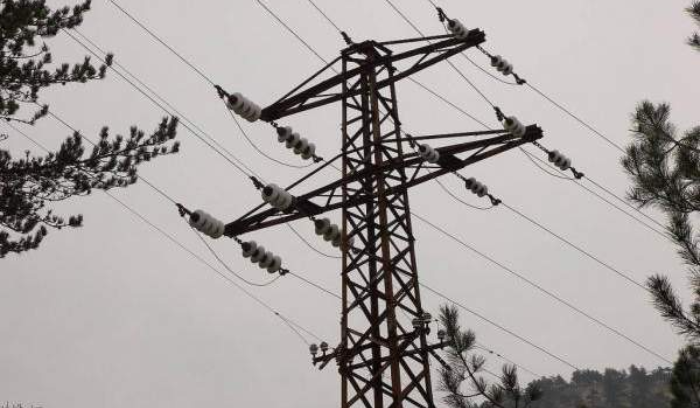Lebanese Prime Minister Najib Mikati's statement about electricity procurement proposals has led to a heated discussion in Lebanon, after he announced that Energy Minister Walid Fayad withdrew the file from the Cabinet "for further study." This prompted the Ministry of Energy to respond, rejecting two offers from international companies at a time when "gas prices are experiencing a significant increase," while Lebanon expects to import gas from Egypt "at a much lower cost," according to ministry sources reported by Asharq Al-Awsat.
On the eve of entering a caretaker phase, Mikati revealed that the government had previously decided in a session to "negotiate with four international companies: Ansaldo, Mitsubishi, General Electric, and Siemens regarding the possibility of supplying Lebanon with generators needed to produce electricity around the clock." He added, "Indeed, General Electric and Siemens, in agreement with international groups, submitted an offer to supply Lebanon with electricity before next summer at a very acceptable price, even regarding the gas price for energy production, but we paused on the matter until an appropriate terms of reference was prepared transparently and in accordance with applicable laws."
Mikati continued: "I personally received, as did the Ministry of Energy, two offers from General Electric and Siemens, each offering to supply the Deir Ammar and Zahrani plants with 1,000 megawatts of gas-powered energy, with the companies also providing the necessary gas for energy generation at a very acceptable price, proportionate to global prices." He added: "We decided to assign a consulting office to prepare terms of reference as quickly as possible to conduct an international bidding process according to the rules, but unfortunately, after the Energy Minister sent the request to the Cabinet, it was withdrawn on Thursday without giving any justification, except 'for further study.' The Energy Minister also withdrew the file related to securing gas for the Zahrani plant under an international tender involving global companies," indicating that "this offer would have helped Lebanon in the future."
Mikati's statement prompted the Ministry of Energy to respond, clarifying that Minister Fayad did not have enough time to study the offer that reached him before the Cabinet meeting, stating that Fayad "is studying the offers and negotiating based on them, and it is not necessarily required that he agrees under pressure that the government will turn into a caretaker, while he can take his time negotiating to ease the burdens on the Lebanese treasury, after which approval could be sought," referring to the possibility of passing it under a resigned government through an exceptional decree signed by the Prime Minister and the President.
The sources explained that the reservations about supplying the Zahrani plant (in the south) with gas arose from the fact that gas prices at this time "are at historical highs," due to the repercussions of the Russian-Ukrainian war, and therefore "approval means committing to pay exorbitant costs at the highest price, while prices may drop after a while once calm is restored, or international settlements are reached, allowing for optimal timing to issue the tender."
They noted that Lebanon "is in constant communication with the World Bank to find a solution to the dilemma of importing gas from Egypt, which will certainly be cheaper than the prices currently offered through European companies," emphasizing that approving these offers at this time "does not suit the country and its capabilities," while "Fayad does not refuse to approve a well-studied offer at the best prices and at the appropriate timing for fluctuating global prices."
Fayad confirmed in a statement that he withdrew the item "for the necessity of meeting the required financial and contractual conditions since it is a consensual contract, to include a price reduction, especially since it is still high, as well as improving payment terms," stressing that "negotiations are still ongoing with Electricité de France." He stated that the government "has entered the caretaker phase, and we must avoid increasing the financial burdens on the state until we ensure obtaining the best conditions."
The electricity file is considered one of the most challenging issues that successive governments have failed to resolve in light of the continuous power outages that reach up to 20 hours a day in some areas, with the Parliament rejecting requests to grant Electricité du Liban any treasury advances to finance fuel costs before implementing sector-related reforms, the most prominent of which include establishing a regulatory authority, implementing an electricity plan that includes building gas stations, and reducing technical waste.
In an attempt to curb the growing crisis since last summer, Lebanon agreed to a proposal to import gas from Egypt and electricity from Jordan through Syrian territory, but the proposal is still awaiting World Bank approval for project funding and final U.S. approval to exempt Egypt and Jordan from "Caesar" sanctions.




